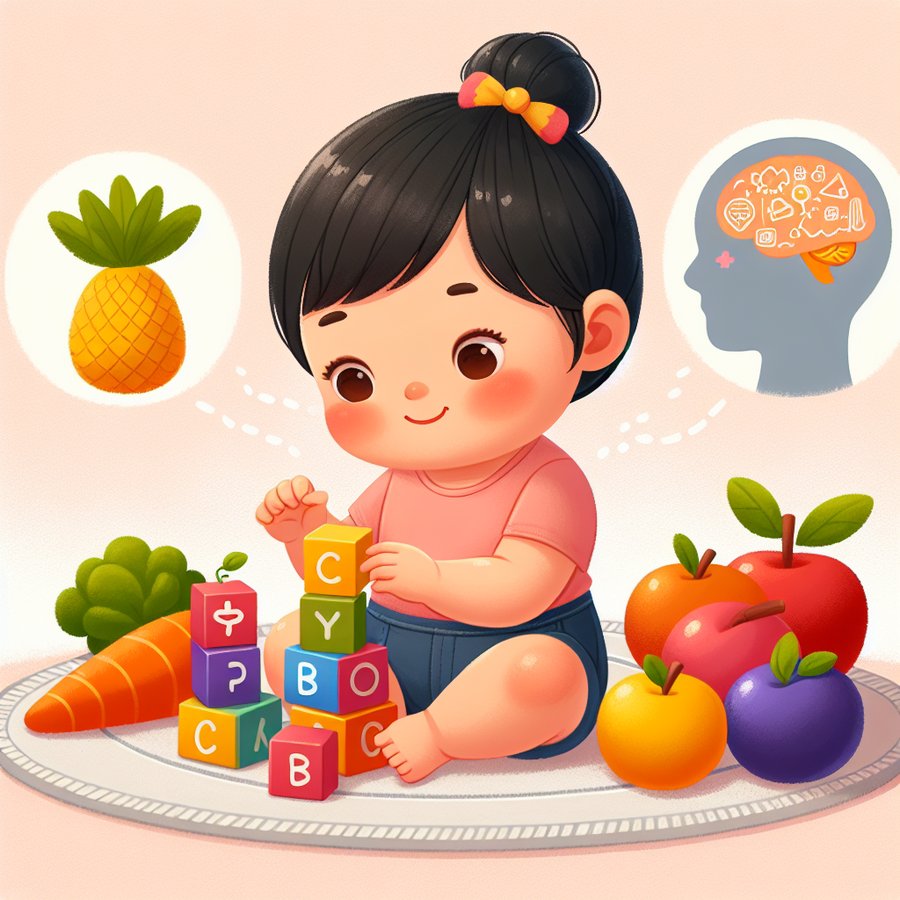Nutrition’s impact on a baby’s cognitive development is a subject that garners immense interest among researchers and parents alike. It’s widely acknowledged that the first few years of a child’s life are pivotal for brain development, and nutrition plays a vital role in this process. This article delves into the intricate relationship between nutrition and cognitive growth in babies, providing valuable insights for parents seeking to support their child’s development.
Nutrition’s Impact on a Baby’s Cognitive Development
The early years of a child’s life see rapid brain development, making nutrition an essential factor in cognitive growth. Essential nutrients such as omega-3 fatty acids, iron, zinc, and vitamins A, D, and E have been shown to significantly influence neural development and cognitive function. Notably, DHA, an omega-3 fatty acid found in breast milk and fortified formulas, is critical for the development of the brain and retina.
Studies suggest that adequate nutrition during infancy leads to improved cognitive outcomes, such as better memory, attention, and problem-solving skills. For example, breastfeeding has been linked with higher intelligence scores in later childhood, attributed to the unique blend of nutrients in breast milk that supports brain development. However, it’s crucial to ensure that babies who are not breastfed receive infant formula that is enriched with essential nutrients to support their cognitive development. For more insights, read about breastfeeding’s role in baby brain development.
Identifying Key Nutrients for Cognitive Enhancement
To optimize a baby’s cognitive development, focus on incorporating specific nutrients into their diet. Omega-3 fatty acids, especially DHA, are paramount for brain health. Iron, critical for cognitive and neurological development, is another essential nutrient, with iron deficiency in early childhood linked to cognitive deficits. Zinc plays a role in brain function and development, while vitamins A, D, and E are crucial for overall brain health.
Foods rich in these nutrients include breast milk, fortified infant formulas, and, as the baby grows, pureed meats, vegetables rich in beta-carotene (like sweet potatoes and carrots), and leafy greens. It’s also beneficial to incorporate foods high in omega-3s, such as salmon, into a toddler’s diet. Ensuring a balanced diet that includes these key nutrients can significantly support cognitive development. For specific strategies, explore nutrition’s impact on a baby’s cognitive development.
Practical Tips for Enhancing Cognitive Development Through Nutrition
Understanding the importance of nutrition in cognitive development is one thing; applying this knowledge practically is another. Here are several actionable tips for parents:
- Begin with breastfeeding, if possible, to provide your baby with the optimal mix of nutrients for brain development.
- When transitioning to solid foods, choose nutrient-rich options that support cognitive health, such as pureed vegetables, fruits, and age-appropriate proteins.
- Consider fortifying your baby’s diet with omega-3 supplements if recommended by your pediatrician, especially if your diet lacks fish.
- Ensure regular pediatric check-ups to monitor your baby’s growth, development, and nutritional intake, adjusting as necessary to meet their evolving needs.
Adhering to these guidelines can significantly contribute to your child’s cognitive development, laying a strong foundation for their future learning and mental health. For further guidance, check out how physical activity influences cognitive development alongside nutrition.
In conclusion, nutrition’s impact on a baby’s cognitive development cannot be overstated. By ensuring that babies receive the essential nutrients they need, parents can support their cognitive growth, setting the stage for a lifetime of learning and development. Remember, each small step taken today contributes significantly to your child’s future.













